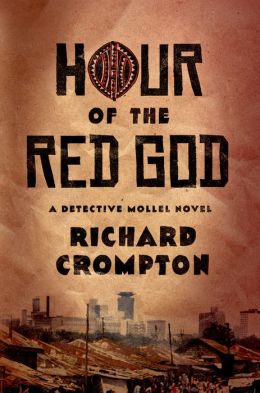 After a fairly rocky beginning, with thousands of aspiring authors dumping masterpieces free of any taint of editing, grammar, spelling, or even consistent story lines on the market, e-book offerings are beginning to look up. Some are offered by traditional publishers, who saw the writing on the tablet, and these are usually as well edited as their print books.
After a fairly rocky beginning, with thousands of aspiring authors dumping masterpieces free of any taint of editing, grammar, spelling, or even consistent story lines on the market, e-book offerings are beginning to look up. Some are offered by traditional publishers, who saw the writing on the tablet, and these are usually as well edited as their print books.Some new authors are soliciting beta reading groups and submitting their books to any of the numerous editing and proofreading services that have sprung up, with generally good results. The best of these new voices sometimes offer stories very different from the cautious formulaic work that traditional publishers seem to want from their authors. Finding an author new to me this way is like mining for diamonds: frustrating and often fruitless, but the occasional gem makes the search worthwhile. Here are a couple of recent winners.
Requiem (A Kate Redman Mystery) by Celina Grace
Newly-hired Detective Sergeant Kate Redman has worked very hard to distance herself from her upbringing with her drunken, slatternly harridan of a mother. She nonetheless remains fond of her half-sibs (by various fathers), and is glad to help them when she can. When her gifted younger brother Jay shows up at her house with a painting that his tutors think may win a prize, she is glad to see him and hear his news. Jay is currently into hyper-realism in his work, and his painting of a drowned girl on the riverbank looks a bit too much like the crime scenes she deals with professionally for her comfort. He proudly lends her the painting until the show, and mounts it over the fireplace in her new house. That night, Jay takes her to a club to hear Elodie, his model and member of a folk rock band, perform.
Kate and her partner, Olbeck, are called to a drowning at the riverbank the next morning, and Kate is horrified to see that the body is Elodie's. The girl had not been drowned, but strangled and dumped into the river, from which an early jogger had pulled her out. Kate faces a terrible dilemma: report Jay's eerily prescient painting to the investigative team or hide it. Jay hadn't come home with her last night, but sent a text that he was crashing with a friend.
This short, tight British procedural, second in a series, is a remarkably professional and enjoyable mystery. While it is currently available only in electronic format, it is as well-edited and -paced as most offerings from major publishers. I immediately downloaded and read the first, Hushabye, and hope that the author will write many more Kate Redman stories.
The President's Henchman by Joseph Flynn
When billionaire philanthropist Andrew Hudson Grant was murdered by radical antiabortionists because his wife Patti, former actress and moderate Republican Congresswoman, refused to support a bill that would have pressured victims of rape and incest not to abort their forced pregnancies, Chief James McGill of the Winnetka police arrested the culprits in one day. Within two years, Patti Grant married Jim McGill and began her run for the presidency, to honor a promise she had made to her late husband Andy. Much to the astonishment of the pundits and powers on both sides, she won.
The new First Family provides several unusual challenges for the Secret Service. McGill, who opens a private investigation business with his old police partner Margaret "Sweetie" Sweeney, will accept only one Secret Service agent and a White House car and driver for protection. And while Patti is childless, McGill has three children by a previous marriage––children who live with his ex-wife and her new husband and who must be protected in place. Those children are being threatened, likely by the sect led by Reverend Burke Godfrey, whose wife Erna was convicted of the murder of Andrew Grant and was sentenced to death.
The first client of McGill Investigations is prominent newscaster Chana Lochlan. An anonymous man has been calling her at her private number. He describes her freckles, moles, and birthmark perfectly, and promises a return visit soon. He calls her Gracie, a nickname used only by her father. Chana has no idea who this is or how he can describe her house and body so accurately.
President Patricia Grant is facing serious challenges of her own: a messy military adultery case that could polarize the country and derail her presidency from its onset, and a market bombing in Cuba attributed by its government to the US-supported rebel community.
The author manages to weave these disparate story lines together skillfully, while presenting a truly horrific villain in Chana's stalker. McGill is a little larger than life, as you might expect in a thriller, but the characters and political machinations of those we elect to do "the Peoples' business" were quite believable. The unusual mix of political thriller and P.I. novel will keep me reading in this series for some time. The Jim McGill books are available in both paper and electronic formats, and the author has also published a number of non-series thrillers. So if you were put off by the early deluge of not-quite-ready-for-prime-time e-books, take heart––and maybe another look. There are some undiscovered gems out there.









